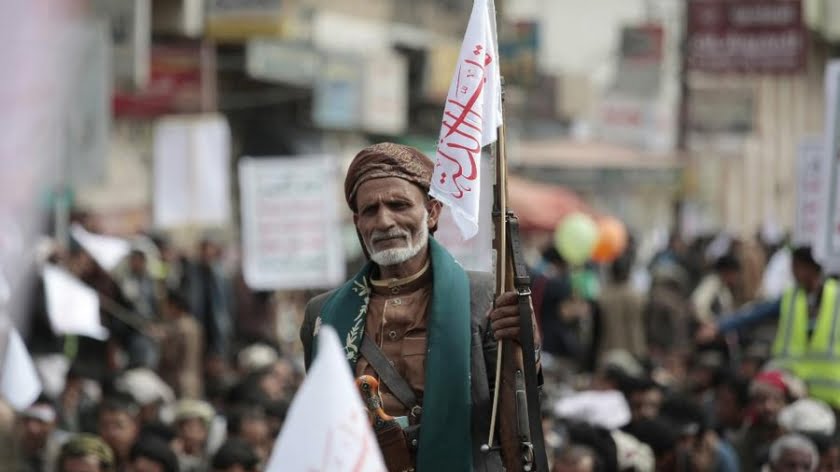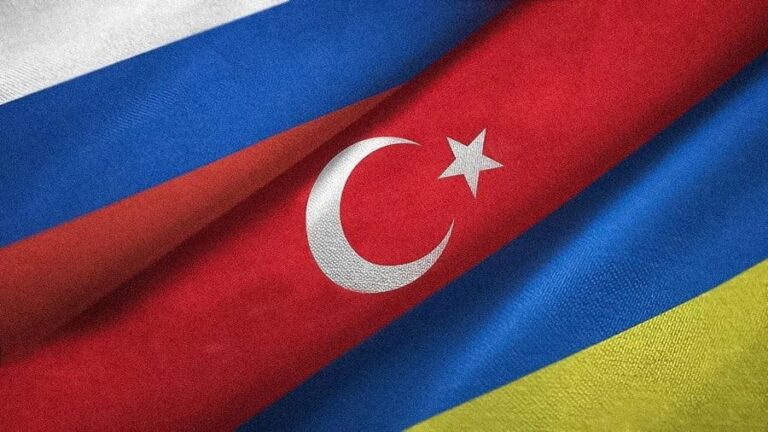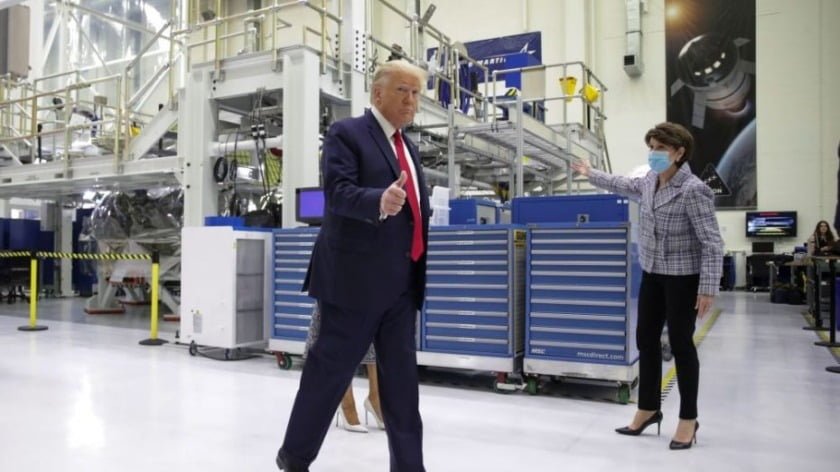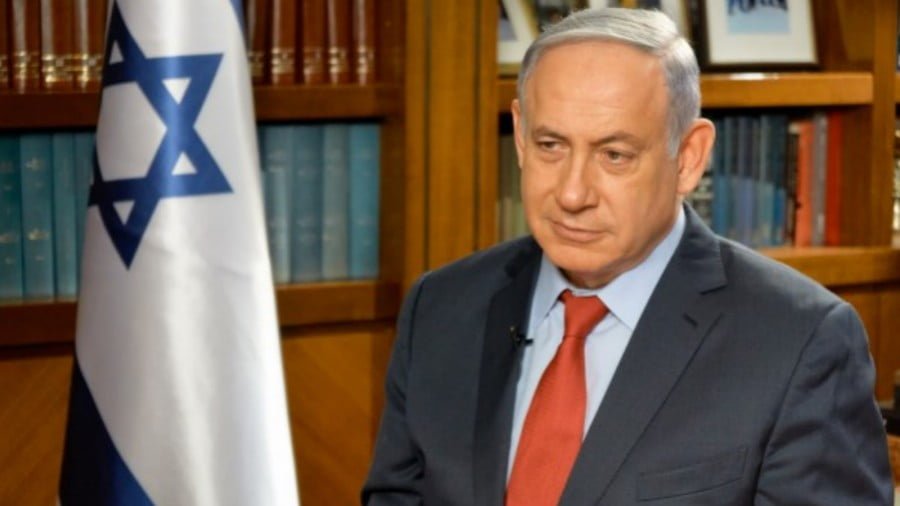Russia’s Sanaa Pullout is a Sharp Rebuke to the Houthis
Negating The Narrative
Right off the bat, any reader who frequents the Alt-Media Community needs to leave aside what they think they know about Russia’s policy towards Yemen before continuing with this article. There have been several misleading but “politically correct” narratives spreading through this information space since the beginning of the 2014 War on Yemen, one of which is the very nature of this conflict itself. The prevailing notion is that it’s an international war, which is true in some regards, but overlooks the civil war dynamics that drove it in the first place. More specifically, this is the regional conflict between the Houthis and President Hadi in what was previously known as North Yemen, and then the overspill of this conflict into the former territory of South Yemen after the Houthis captured Aden. It was only then, when the rest of the country was on the verge of coming under the Houthis’ control, that the Saudi-led coalition intervened and began its merciless bombing campaign and naval blockade of Yemen.
The War on Yemen is thus a multidimensional conflict with both domestic and international components, and this should have been clear to all objective observers from the outset.
Nevertheless, there is a strong disposition in the Alt-Media Community to take narrative cues – both stated and implied – from Iran when formulating analytical angles in addressing events such as this one, and it’s for that reason why the myth has pervaded that the Houthis are a National Liberation Movement for all of Yemen. It’s indeed true that they function in this regard when it comes to the old realm of North Yemen, but they’re distinctly seen as invaders by many of the people in South Yemen. The author himself, prior to learning more about the deeper nuances of this conflict, was admittedly under a similar spell in only seeing the short-term and subjective “positives” of the movement, but the passing of time and intense research has revealed that the Houthis aren’t the “picture perfect” National Liberation Movement that they’re made out to be by Iran and its friendly supporters in the Alt-Media Community. As a case in point, the Houthis slayed Saleh and showed the world that they won’t accept a “compromised” peace agreement with the coalition.
Haunted By The Houthis
The assassination of the former Yemeni President removed any hope for state-level “international legitimacy” that the Houthis could have ever dreamed to receive from Russia, and with this militia now fully in control of the capital after carrying out its “deep state” coup against its former General People’s Congress (GPC) allies (to be fair, they claim it was in response to them “backstabbing” the Houthis first), it’s understandable why Moscow wouldn’t consider this as a safe environment for its diplomats. Just like ousted President Hadi fled to Saudi Arabia, so too are the Russian diplomats going there as well, at least until the situation stabilizes, which might imply the Houthis reaching a real power-sharing agreement with Saleh’s GPC or another group as opposed to essentially sidelining the former after their leader was killed off. Also, it might have escaped the notice of most Alt-Media readers, but Russia has always continued to recognize Hadi as Yemen’s legitimate President, and recently signed an arms deal with coalition leader Saudi Arabia that included grenade launchers and heavy flame systems that could eventually see battlefield use in Yemen.
However, for as much as Russia has remained pro-Hadi, it hasn’t been anti-Houthi either. Russia did, in fact, retain a diplomatic presence in Sanaa despite the forces of what Moscow officially considers to be the country’s legitimate president not being in control of the capital. That, though, was during the time that Saleh was still alive and his GPC was in an actual alliance with the Houthis. Now that this wartime coalition is basically disbanded for all practical intents and purposes, Russia might fear that it can’t trust the Houthis to protect its diplomatic facility or personnel. After all, Russia and the Houthis’ hated nemesis Saudi Arabia are in the process of a fast-moving and comprehensive rapprochement, one which must been seen askance by them and their partners in Iran. Furthermore, considering that reports claim that Russian doctors saved Saleh’s life in mid-October after the historic visit of Saudi King Salman to Moscow, there’s a chance that the country’s diplomats might have feared that they’d become the target of Houthi retribution after the group’s former ally “betrayed” them.
Piecing Together The Proof
Altogether, Russia’s support for ousted President Hadi, its rapprochement with Saudi Arabia, and previous medical intervention in saving the life of former President Saleh come together in such a way that it would be both “diplomatically inappropriate” and possibly even outright dangerous for Moscow to retain its diplomatic presence in the Houthi-controlled capital of Sanaa after Saleh’s slaying. So as not to be misunderstood, there are no credible reports that the Houthis threatened Russia’s diplomats, but it might have just been enough for Russia’s Saudi partner to hint as much in order for Moscow to take preventative action in avoiding what it could have been fear mongered to think could become its own Benghazi, especially bearing in mind how four journalist hostages – one of whom might be a Sputnik freelance correspondent – apparently died under Houthi captivity. At the same time, however, Russia is coordinating its peacemaking efforts in Syria with the Houthis’ Iranian partner, so Moscow had to announce its diplomatic withdrawal from Sanaa in a sensitive manner so as to not risk Tehran’s ire and inadvertently jeopardize the deep level of trust that undergirds their joint Astana efforts.
It should be self-evident at this point that Russia does not, never did, nor ever will support the Houthis, and that Moscow simply tolerated them so long as they were allied with Saleh and the former (and at one recent point, possibly hoped-for future) state figure was alive. As a result of “EuroMaidan”, Russia is reluctant to ever recognize what it views to be the unconstitutional overthrow of any national leader, no matter how valid the motives for opposing that individual may have been, but Alt-Media has hitherto had a tendency to pretend that this wasn’t the case, possibly out of fear that emphasizing a lack of agreement with Iran on any issue at all would somehow undermine their cooperation in Syria. Should that have been the reason, though, then it would be silly and self-deluded because it suggests that passive information consumers outside of any of the relevant countries’ decision-making (“deep state”) apparatuses are somehow capable of deciding the course of international partnerships at the state-to-state level, which isn’t true but remains a popular Alt-Media delusion.
The Art Of “Balancing”
By withdrawing from Sanaa, Russia is showing the world in an indirect way (per the political sensitivities of its partnership with Iran) that it doesn’t feel safe keeping its diplomats in the capital after the Houthi takeover of Sanaa, the execution of former President Saleh by the group, and the possible death of four of the 41 journalists (one of whom might be a freelance Sputnik correspondent) that were taken hostage by them in the aftermath, with the unsaid message being that the Houthis might constitute a very real security threat to Russia’s citizens. This conclusion contradicts the prevailing narrative spread across many Alt-Media platforms for nearly the past three years and reveals it to have either been deliberately self-serving or terribly short-sighted, either of which were proven at the end of the day to be wrong. No matter what might have been alleged in the past, it’s now obvious that Russia was only tolerating the Houthis because of Saleh, not as part of some tacitly executed “master plan” with Iran to irk Saudi Arabia, the second of which is now a very close Russian partner.
In fact, Russia and Saudi Arabia are now on such close terms with one another nowadays that it wouldn’t be surprising if Riyadh warned Moscow about an imminent bombing campaign against the Houthi-controlled Yemeni capital, which could have been all that it took to convince any second-guessing Russians of the need to withdraw from Sanaa as soon as possible. Nonetheless, it should be remembered that Russia isn’t inherently anti-Houthi by any stretch of the imagination, and is likely involved in backstage diplomatic efforts to encourage the application of its Syrian model to the Yemeni conflict, which could entail third-party-brokered (Russian) peace talks, the categorization of non-state militias into “moderates” and “terrorists”, “de-escalation zones”, constitutional “reform”, and new internationally supervised elections, all of which are key elements of UNSC Res. 2254 and the Astana peace process. Russia wouldn’t preclude pragmatically incorporating the Houthis into a “political solution” to the War on Yemen, but nor will it ever favor them when it has more to gain by “balancing” between all parties instead, with Russia’s policy being guided solely by realpolitik and not in any way influenced by Alt-Media’s “wishful thinking” fantasies.
By Andrew Korybko
Source: The Duran







